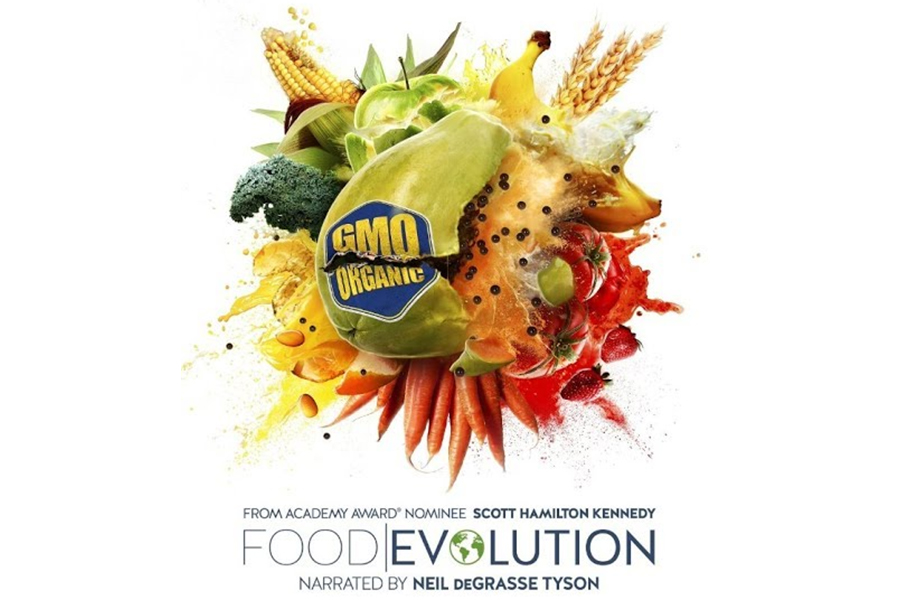
Film “Food Evolution” highlights major disconnect between public opinion and scientists’ consensus
Food is a part of everyday life, whether it is something that must actively be thought about or is merely within someone’s daily routine. Many scientists are tackling the issue of the most efficient and environmentally-friendly way to produce food, especially since the population is expected to grow to 9 billion by 2050.
The majority of scientists state that genetically modified organisms are safe for consumption and will help in solving the food shortage problem, but public opinion doesn’t quite line up.
“The majority of the public consider it to be unsafe, and the vast majority of scientists look at the data and say it isn’t,” said Alison Van Eenennaam, a cooperative extension specialist in animal biotechnology and genomics in the UC Davis Department of Animal Science. “That gap is 50-odd points of the public versus the scientists. That gap is developed through the marketing and misinformation that’s being spread by [anti-GMO] groups. That’s going to take a long time to go away.”
The debate about public opinion on GMOs and the scientific consensus is the driving force behind the film “Food Evolution,” which features UC Davis researchers as well as other scientists across the world. Part of the film focuses on farmers in Africa, who struggle to survive due to disease-riddled crops and the repercussions of activist groups in developed countries affecting developing countries.
“There are still many groups out there that are spreading misinformation and continuing on their scaremongering campaigns, especially in the developing world,” Van Eenennaam said. “What annoys me, as it says in the movie, [is that] these are first-world people having impacts on the developing world, and they’re food insecure. We’re food secure — if you pick organic or conventional, you’re going to have safe food either way. They have no food. It’s bananas or nothing [in Uganda]. We all want the best for our families and the environment, but one side is getting driven by unsupported information and so they think that they’re doing the right thing, with quite possibly good intentions.”
The rallying of anti-GMO organizations has, depending on the country, resulted in the required labeling, a restriction or a complete ban on GM foods.
“If you go to the medical world, biotechnology is everybody’s great hope,” said Kent J. Bradford, a distinguished professor in the Department of Plant Sciences at UC Davis and the director of the Seed Biotechnology Center. “But if you go to the food world, for some reason, people are scared of it. [Biotechnology has] come to be sort of identified strictly with genetic engineering, but there are many biotechnologies that don’t require that and many of those that could be enhanced by it.”
Van Eenennaam thinks that an alternate solution to food shortage should be provided if scientists are not allowed to produce GM foods for the public.
“I think that [being cold and robotic] is a style of communication that’s expected at scientific meetings, whereas, when you’re talking with the public, you want to be more human and much more emotional,” Van Eenennaam said. “That’s not usually an easy transition for people, and maybe they don’t even think about it because they assume everyone is convinced by data, so they don’t reframe the discussion with a public audience in a way that’s compelling to that audience.”
There were a few depictions in the film of a handful of advocates not being able to state what GMO stood for, even though they said they were against GMOs.
“Everything we eat is genetically-improved using some type of genetic strategy,” said Pamela Ronald, a distinguished professor in plant pathology and at the Genome Center at UC Davis. “I think that even in the Central Valley, where we grow massive amounts of global food, there’s still very few people who farm, and most people probably aren’t familiar with farming, so I think that it’s our job to teach about breeding and farming.”
Though the film focuses on GMOs, it’s used as an extended metaphor to highlight the broader issue of the public’s distrust of scientific literature and expert opinions.
“Yes, [the issue is] about GMOs, but it’s really about how do we make decisions, and the importance of objective evidence guiding our decisions, and how easy it is for fear and emotion to overwhelm science and people get the wrong idea about agriculture in particular,” Van Eenennaam said. “I think that was what the movie tried to address — that fight between what your gut tells you and what’s actually true.”
“Food Evolution” will be screening at UC Davis on March 7, with a Q&A with UC Davis professors after the screening.
Written by: Jack Carillo Concordia — science@theaggie.org




Time and location for the screening?
You forgot to point out that the fictitious “consensus” of Agri-Chem preachers who are completely incompetent in any field of animal or human medicine who have no business whatsoever to even discuss safety of these carcinogen soaked allergenic mutants. How far UCDavis has fallen publishing rank junk food PROPAGANDA by the most famous Pesticide Shills on Planet Earth